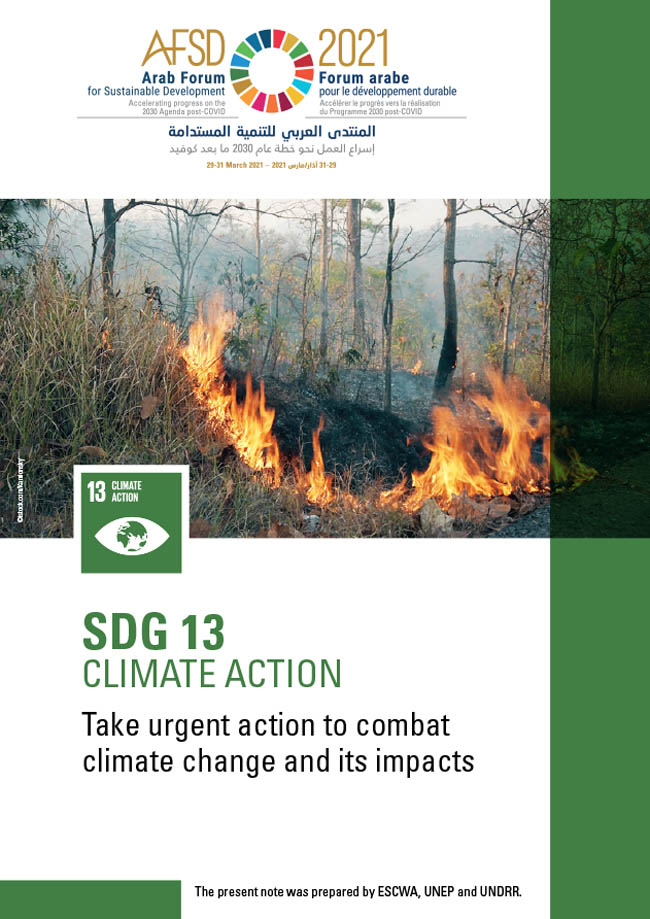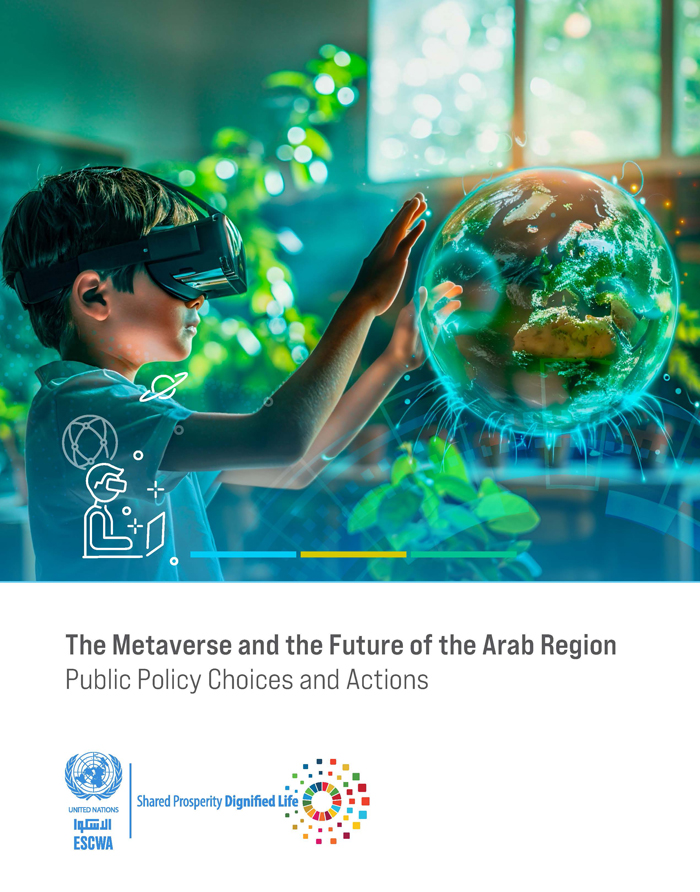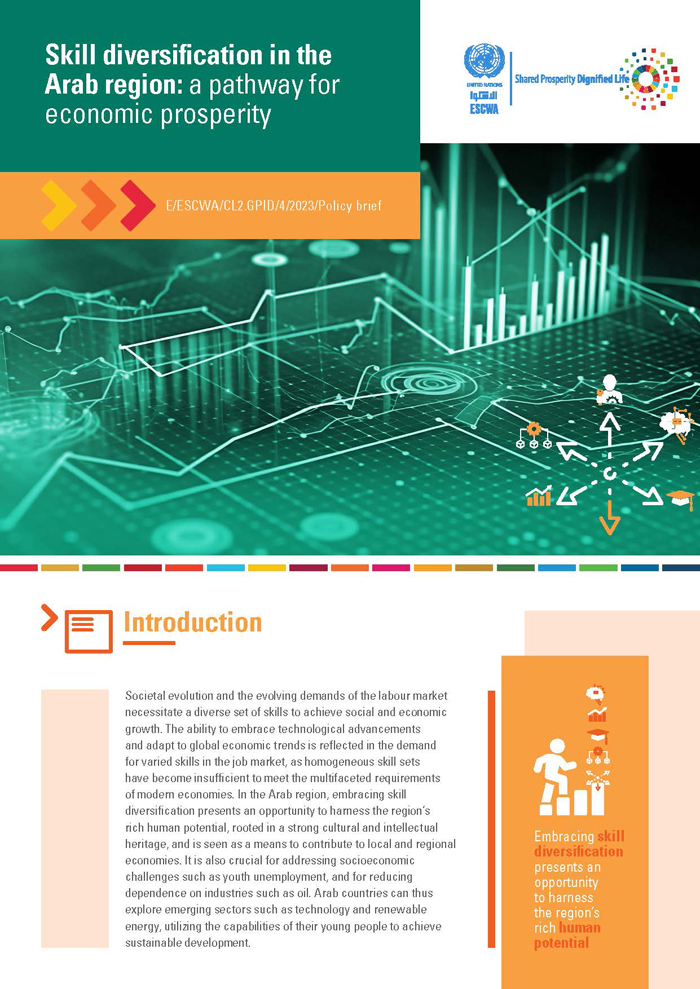
ESCWA Publication: E/ESCWA/RFSD/2021/INF.13
Country: Arab region
Publication Type: Information material
Cluster: 2030 Agenda and SDG Coordination
Focus Area: 2030 Agenda
Initiatives: Arab Forum for Sustainable Development
SDGs: Agenda 2030, Goal 13: Climate Action
Keywords: Covid-19, Arab countries, Climate change, Government policy, Sustainable development, Climate
SDG 13 Climate Action
March 2021
The impact of climate change is acute in the Arab region, with temperatures continuing to climb. Vulnerability is on the rise as vast numbers of people confront growing water scarcity and droughts. Climate-related disasters and extreme weather events are taking a toll through loss of life, economic damages and displacement. Providing humanitarian assistance in response to these events has been complicated by the COVID-19 pandemic, as has the provision of development assistance aimed at reducing socioeconomic vulnerability.
Despite the economic slowdown caused by the pandemic, record levels of greenhouse gases remain in the atmosphere trapping heat. The period 2011-2020 was the warmest decade on record, with 2020 being one of the three hottest years on record. While many countries are investing in climate adaptation, diversifying their economies, and incorporating climate considerations in national development plans and disaster risk reduction strategies, more comprehensive and innovative financial instruments are needed to secure the resources required to ensure their implementation. This is particularly important given fiscal tightening owing to the redirection of public resources to respond to the pandemic. This has created a unique opportunity to pursue green recovery efforts that can enhance resilience to climate shocks while recovering from the economic downturn caused by the pandemic. Integrated solutions must draw on science and risk assessments to inform sustainable development pathways. Regional and multi-stakeholder efforts can support collective understanding and climate action at the national and local levels.
Related content
2030 Agenda
,
The impact of climate change is acute in the Arab region, with temperatures continuing to climb. Vulnerability is on the rise as vast numbers of people confront growing water scarcity and droughts. Climate-related disasters and extreme weather events are taking a toll through loss of life, economic damages and displacement. Providing humanitarian assistance in response to these events has been complicated by the COVID-19 pandemic, as has the provision of development assistance aimed at reducing socioeconomic vulnerability.
Despite the economic slowdown caused by the pandemic, record levels of greenhouse gases remain in the atmosphere trapping heat. The period 2011-2020 was the warmest decade on record, with 2020 being one of the three hottest years on record. While many countries are investing in climate adaptation, diversifying their economies, and incorporating climate considerations in national development plans and disaster risk reduction strategies, more comprehensive and innovative financial instruments are needed to secure the resources required to ensure their implementation. This is particularly important given fiscal tightening owing to the redirection of public resources to respond to the pandemic. This has created a unique opportunity to pursue green recovery efforts that can enhance resilience to climate shocks while recovering from the economic downturn caused by the pandemic. Integrated solutions must draw on science and risk assessments to inform sustainable development pathways. Regional and multi-stakeholder efforts can support collective understanding and climate action at the national and local levels.


